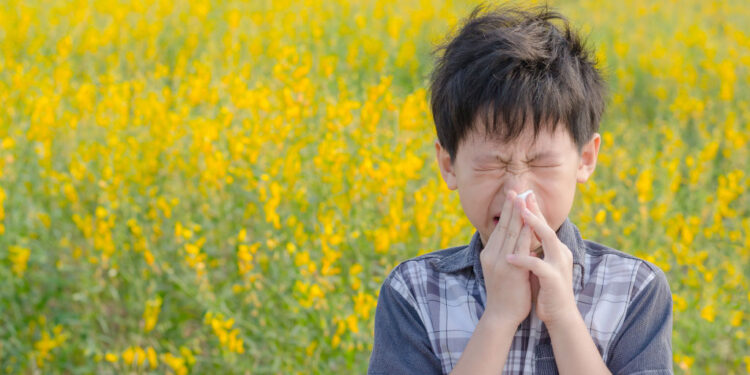By Dominic Taylor–
Exposure to Pollen can raise the risk of getting COVID-19, according to new research.
Plant physiologist Lewis Ziska, a co-author of the new peer-reviewed study, alongside other recent research on pollen and climate change, have concluded that pollens that typically don’t cause allergic reactions were correlated with an increase in COVID-19 infections.
With a gradual transition into a new season, researchers are raising awareness for members of the public to be conscious of the extra risk that exposure to pollens can cause. They are effectively encouraging the public to minimise outdoor movements as much as possible and value lockdown practices, due to the increased risk of getting Covid-19
Tree pollen season usually starts at the beginning of spring in March, April, and the first half of May, while the grass pollen season is typically mid-May through early-to-mid-July, although the calendar can vary year to year, depending on meteorological conditions.
Lewis told The Eye Of Media.Com staying indoors limits exposure to pollens as much as possible.
”Wearing masks during pollen seasons substantially decreases the chances of catching Covid-19 due to high pollen exposure
”The infection rates tended to rise four days after a high pollen count. If there was no local lockdown, the infection rate increased by an average of about 4% per 100 pollen grains in a cubic meter of air. A strict lockdown cuts the increase by half, Lewis said.
As the overall pollen season is getting longer, exposure to pollen, from spring, which is primarily driven by tree pollen, to the summer, and then the fall, is about 20 days longer in North America now than it was in 1990. As you move toward the poles, where temperatures are rising faster, we found that the season is becoming even more pronounced.
Plant Psychologist : Lewis Ziska
Researchers examined the number of new infections changed with the rise and fall of pollen levels in 31 countries around the world. We found that, on average, about 44% of the variability in COVID-19 case rates was related to pollen exposure, often in synergy with humidity and temperature.
People are advised to raise their risk of getting COVID-19, whether they have allergies or not try to stay indoors to limit your exposure as much as possible.
Historical records suggest that these shifts have been happening for at least the past 30 to 40 years
Meteorological conditions. like a cold and wet spring can change the calendar year and delay the tree pollen season and cause it to overlap with the peak of grass pollen season, causing a double whammy for allergy sufferers.
Pollens are capable of suppressing how the human immune system responds to viruses. This is because they are capable of interfering with proteins that signal antiviral responses in cells lining the airways, it can leave people more susceptible to potentially a whole host of respiratory viruses, such as the flu virus and other SARS viruses.

